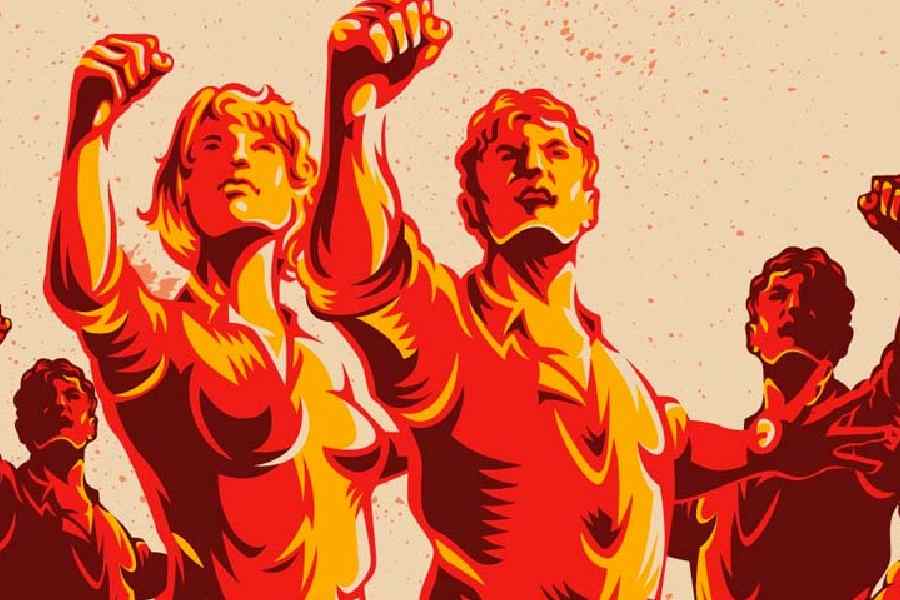A group of senior academics has sent a petition to the state higher secondary council on Wednesday seeking the deletion of the phrase “political slogan” from Clause 19(r) in the recently notified West Bengal Higher Secondary Examination Regulations, 2024.
The clause, which has been in existence since 2006, stipulates that a candidate “found indulging in indecorous writing or indecorous drawing or political slogan in the answer script/OMR” shall be “held guilty of misconduct or malpractice”.
The regulation says the president of the council can either “take appropriate action or refer the case to [an] Enquiry Committee for taking further action”.
The gazette notification reaffirming the existing guidelines came on August 21.
“If what is written is in itself not illegal or objectionable and the rest of the answer script has enough merit, are we to disqualify the candidate because of a political slogan?” asked Sukanta Chaudhuri, Professor Emeritus, Jadavpur University, who initiated the appeal.
The email raises several points like whether the term “slogan” should be taken literally.
“Is any other kind of political statement, even a long discourse, not covered by this provision?” it asks.
It also seeks a clarification on what is to be interpreted as “political”.
“More crucially, what is to be interpreted as ‘political’? As we know, religious or patriotic expressions are often adopted by political groups for their own purposes. Also, candidates often write religious mottos or prayers at the start of their answer scripts simply to invoke divine blessings, but such writings can be viewed as sectarian or communal,” the email says.
The 31 academics who wrote to the council also expressed doubts about whether it would be possible “to handle slogans of powerful political groups” — for example, the ruling parties at the Centre or in the state — on the same basis as any other.
The email points to the possibility of there being “widespread social movements that Uchcha Madhyamik students, on the verge of adulthood,” are drawn to support.
Candidates, the mail says, “might write a slogan from such a movement in their answer-books as a gesture. In fact, many students might do so as a general campaign. If the slogan is not inherently illegal or objectionable, and the rest of the answer-book contains standard admissible material (perhaps of a high quality), will the candidate be charged with ‘misconduct or malpractice’ despite her/his merit and the absence of any inherently mischievous material in the script?”
Anupam Basu, a formerprofessor at IIT Kharagpur, a former director of NIT Durgapur and a signatory to the petition, said: “What if a student is asked to write an essay on topics like thewomen’s liberation movement or the state of women insociety in subjects like English and Bengali and he or she refers to the horrific incidentat RG Kar Medical Collegeand Hospital and writes slogans like ‘Reclaim the Night’ or ‘We Want Justice’. Will the council view this as a political slogan and punish thestudent?”
The Mamata Banerjee government had in September 2016 included theSingur movement against land acquisition in thehistory syllabus of government-run and government-aided schools at the level of Class VIII.
Asked about the need to include such a politically loaded subject in the syllabus for schoolchildren, then education minister Partha Chatterjee had said if May Day and the Khilafat Movement could be part of the curriculum, there was “no harm” in including lessons on the Singurmovement.
Chiranjeeb Bhattacharya, the president of the state higher secondary council, told Metro: “We have received the suggestions from the eminent academics. We will go through their suggestions and then take a call. This clause has been in existence over the past 18 years, but no one raised questions to date. Still, we will discuss and deliberate on the suggestions.
“As the president of the council, I will send a formal response to professorChaudhuri.”
Bhattacharya, a JU professor who is on a lien, said the provision was not in the council’s regulations in 1999.
“It was inserted in 2006 and was retained in the gazette notification published on August 21, 2024, because the plus-II syllabus has been split in a semesterised system.”
Basu said: “If a regulation has been in existence for 18 years, it does not mean one cannot question its legitimacy.”
Other signatories include Ashoke Ranjan Thakur, former vice-chancellor, West Bengal University of Technology and West Bengal State University; Supriya Chaudhuri, Professor Emerita,Jadavpur University; Sugata Hazra, former director, School of Oceanographic Studies,Jadavpur University; and Achin Chakraborty, professor and former director, Institute of Development Studies,Calcutta.










